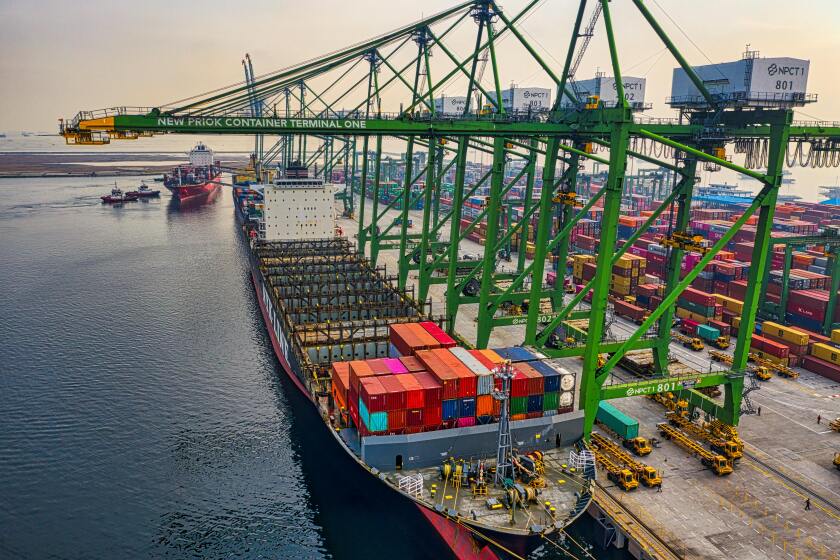Import policy and regulations from the minister of trade
In an effort to optimise the importation of certain goods, the Indonesian minister of trade has issued Regulation No. 8 of 2024 (MoT-8) as the third amendment of Minister of Trade Regulation No. 36 of 2023. The latest amendment has been issued to reduce, and ultimately solve, the problem of container congestion at the country’s seaports, thereby improving and accelerating the various processes involved in commercial imports.
The importers of the various types of goods that are outlined under appendices I and II of this regulation that arrived at designated ports between March 10 and May 18 2024 were encouraged to promptly comply with the new import requirements to facilitate the immediate clearance of their goods.
The regulation provides for several new import policies, which can be summarised as follows.
Free-import and/or restricted-import consignment goods and personal goods
Under the original framework of Minister of Trade Regulation No. 36 of 2023, imports of certain goods owned by Indonesian migrant workers were permitted without the need for the relevant parties to secure business identification numbers (Nomor Izin Berusaha, or NIBs) and/or business licences for the import sector, or complete verifications/technical inspections. MoT-8 further expands this list by including the following goods under the above-mentioned exemptions:
Personal consignment goods;
Passengers’ personal goods;
Personal goods of the crew members of transportation facilities;
Personal goods of border crossers;
Personal effects of Indonesian citizens and foreign citizens; and
Consignment goods for hajj pilgrims that are sent through postal organisers.
However, it is important to note that MoT-8 also specifically limits the importation of certain personal items that are carried by passengers – including mobile phones, laptops, and tablets – from locations outside official Indonesian customs areas into free-trade and free-port zones (Kawasan Perdagangan Bebas dan Pelabuhan Bebas).
Import approval exemptions
Newly featured under the appendices to MoT-8 are a number of provisions that ease the import process for certain commodities, including exemptions from the requirement to secure the previously mandated import approvals. Imports of commodities such as traditional medicines and health supplements, cosmetics and household healthcare supplies, bags, and valves may now only require surveyors’ reports (Laporan Surveyor).
In terms of lubricant raw materials and valves, MoT-8 has clarified that the issuance of import approvals based on Minister of Trade Regulation No. 7 of 2024 will remain in force for up to one month after MoT-8 came into effect; i.e., until June 18 2024. Furthermore, import approvals for the aforementioned commodities that were issued prior to the effective date of MoT-8 will remain valid until their relevant expiry dates without any further verifications or technical tracing being required.
However, it should be noted that goods such as iron, steel, alloy steel, their derivatives, textiles, and textile products are excluded from the MoT-8 import regulations and are therefore not exempted from the verification and technical inspection requirements.
Technical consideration exemptions
To ensure the ease of importation for commodities such as electronics, footwear, and ready-made clothing and accessories, exemptions from the obligation to secure technical considerations from the Ministry of Trade have been introduced. Furthermore, a number of additional provisions now apply to some of the commodities that are imported in relation to the business activities of importers that have secured valid NIBs as importer identification numbers (Angka Pengenal Importir, or APIs). These provisions are relevant to the exemption category for goods that are imported under an API-P (a producer import licence) to be used as capital goods, raw materials, and/or auxiliary materials in relation to the relevant industries.
MoT-8 became effective on May 17 2024.
Recipients of zakat or mandatory religious donations deductible from gross income
The Directorate General of Taxes has issued Regulation No. PER-3/PJ/2024 as an amendment of PER-04/PJ/2022 concerning institutions established or authorised by the government to be designated as recipients of zakat or mandatory religious donations deductible from gross income.
This regulation updates the annex listing institutions eligible to receive zakat or mandatory religious donations deductible from gross income. With this update, taxpayers have more options to distribute zakat or donations to designated institutions while retaining the deductibility of such religious donations.
The regulation became effective on April 19 2024.
Public housing savings
Government Regulation No. 25 of 2020, concerning the public housing savings programme known as Tapera, has recently been amended by Government Regulation No. 21 for year 2024 regarding the Organisation of Public Housing Savings (PP-21), which became effective on May 20 2024.
Tapera is a saving mechanism through which participants regularly contribute funds within a specified timeframe, which are exclusively designated for housing financing. The savings under the Tapera programme were set at 3% of an employee’s wage or a self-employed individual’s income. The key points of the Tapera programme can be summarised as follows.
Description | Terms and conditions |
Participants | Participants of Tapera are: Indonesian citizens or foreigners working in Indonesia for a minimum of six months; Employed or self-employed; Earning at least the minimum wage; and At least 20 years old or married. |
Rate | The Tapera savings amount is set at 3% of the participant's salary or wage; The savings amount for employee participants is borne by the employer at 0.5% and the employee at 2.5%; and The savings amount for self-employed participants is entirely borne by the participant. |
End period | Tapera membership ends due to: Reaching the age of 58 for self-employed individuals; Death; or No longer meeting the participant criteria for five consecutive years (no longer having income due to total disability or termination of employment). |
Qualification | The requirements to qualify for housing financing are: A minimum membership period of 12 months; Belonging to low-income groups; Not owning a house yet; and Using it for financing the ownership, construction, or improvement of a first home. |
Housing financing criteria | Participant housing financing is implemented based on the following priority criteria: Length of the membership period; Level of regularity in paying savings; The urgency level of home ownership; and The availability of utilisation funds. |
It is important to note that PP-21 has mandated that employers in the public sector register their employees to the Tapera central agency by 2027 (seven years after the promulgation date of Government Regulation No. 25 of 2020). Regarding taxation, there is uncertainty about the Tapera contribution. Theoretically, this Tapera contribution should be treated as a deduction of gross income similar to old-age security and pension security contributions. However, the implementing tax regulations pertaining to the Tapera contribution have not yet been issued.













